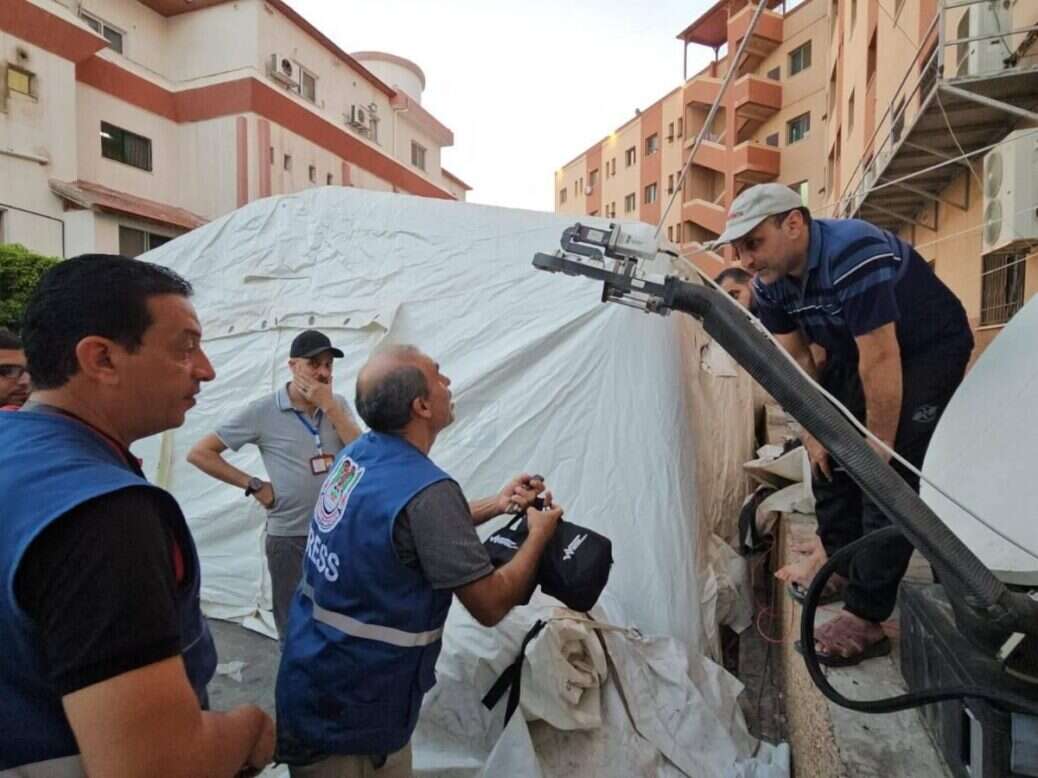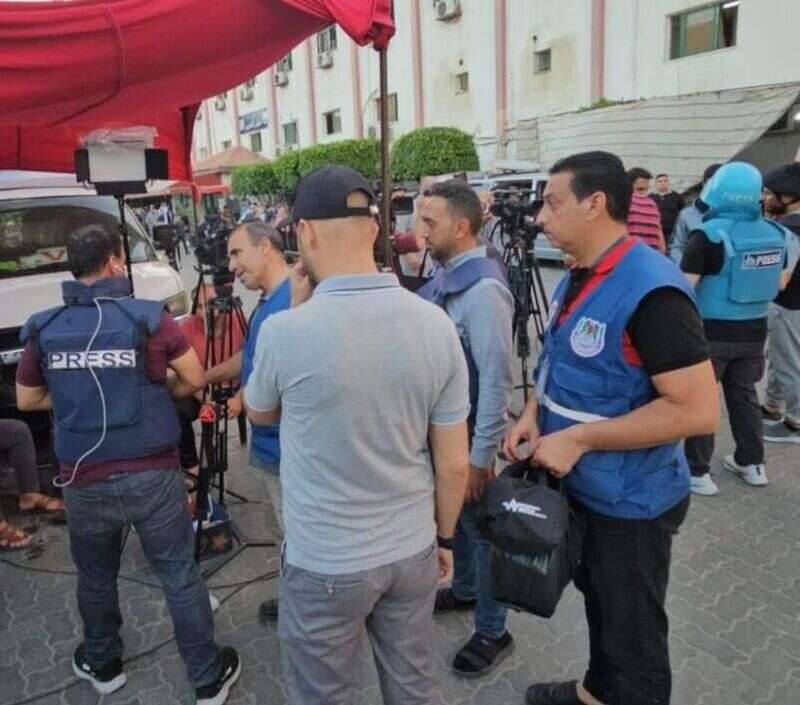
The streets of Khan Younis look much the same as those in Mediterranean cities – lined with modern, seven-storey flats, shops trading and cars parked by the kerbs. Less usual, in the south Gazan city, is the backdrop of artillery fire and the tang of high explosives that hang heavy in the air.
Until a week ago, Khan Younis had a population of 350,000. Today, its streets are far busier, as Gaza’s population has streamed south in anticipation of an Israeli land invasion.
Among those living in a displacement centre is Dr Tahseen Al Asttal, vice-president of the Palestinian Journalists Syndicate (PJS) and the union’s leader in Gaza.
The 52-year-old spent the weekend visiting journalists as they await developments. Around 1,000 are currently at work in Gaza, most camped close to the Nasser hospital in Khan Younis where emergency wound treatment kits, provided by the International Federation of Journalists (IFJ), are being distributed.
“Journalists are afraid about the anticipated scale of the bombing, as well as the likely impact of the expected occupation to come”, he told me over Whatsapp.
“Communication networks are not working well, so staying in touch is difficult. We also don’t have enough protective equipment and helmets.”
12 journalists killed in first week of conflict – ten in Gaza
These fears are well-founded. Ten journalists have died in Gaza in the last week, as well as one in Lebanon. An Israeli photographer died during the Hamas invasion.
No foreign journalists remain in Gaza, the Foreign Press Association in Jerusalem has confirmed. What information we have from the 141 square mile territory is coming from Gazan reporters and camera operators.
The level of fear among these already battle-hardened journalists, however, is unusually high.
“The usual instinct of reporters is to go to where the shelling is happening, but the danger here today is extreme,” says Al Asttal, whose day job is as a journalist and TV director. “PJS is advising camera crews to stay in the south of Gaza for their own safety.”
‘Food and water are very scarce, the electricity keeps cutting out’
Life here is still tough, Asttal says: “Food and water are very scarce, the electricity keeps cutting out and we struggle to connect to the internet. I’m here with my extended family, living in a single room. All of our children are clearly very, very afraid.”
Al Asttal is deeply grateful for the help that Gazan journalists have already received but says that much more is still needed – particularly safety equipment and battery power packs.

The wound treatment kits that were distributed were sourced in the West Bank and paid for, in part, by a £20,000 donation to the IFJ’s International Safety Fund, sent by the UK and Ireland’s National Union of Journalists at the end of last week.
Nasser Abu Baker, the president of the PJS who is based in the West Bank, told me: “We fear that a humanitarian catastrophe is about to unfold, and Palestinian journalists will be on the frontline.
“Our determination is to ensure that, whatever happens in the next days and weeks, the world has a clear, unvarnished picture of what happens. Impartial, accurate ethical reporting is paramount.
“I fear that many more will pay with their lives, and I appeal to journalists [over] the world to find ways to lend their support in this darkest hour.”
Email pged@pressgazette.co.uk to point out mistakes, provide story tips or send in a letter for publication on our "Letters Page" blog
